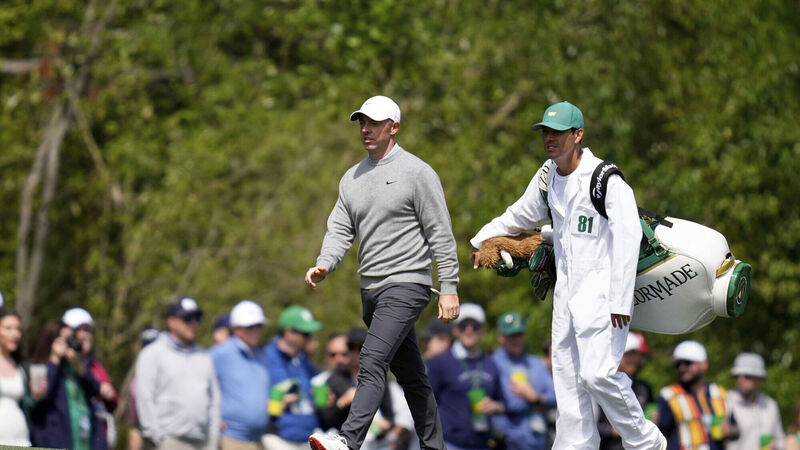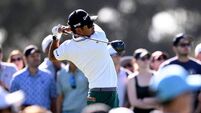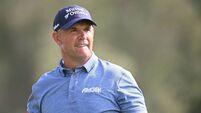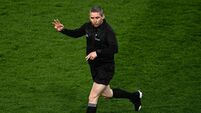Now comfortable being vulnerable, Rory McIlroy's latest quest for elusive Masters glory begins

CHASING THE GREEN JACKET: Rory McIlroy, of Northern Ireland, walks with caddie Harry Diamond on the fifth hole during a practice round at the Masters. Pic: Ashley Landis/AP
Ernie Els once said that “Augusta doesn’t owe anybody anything,” and it demonstrated that – sometimes cruelly – in his 23 unrequited efforts at the Masters.
Other golf greats seemingly destined to win green jackets were forever turned away at the door to the Champions’ Dinner – Tom Weiskopf, Greg Norman, Tom Kite, Davis Love III and David Duval, to name just a few.
















